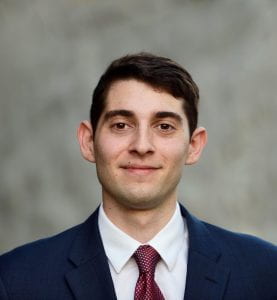
Program: Master of Science in Finance
Undergraduate University and Major: BS in Management Engineering from Worcester Polytechnic Institute, December 2016
Graduating Class: Class of 2021

Program: Master of Science in Finance
Undergraduate University and Major: BS in Management Engineering from Worcester Polytechnic Institute, December 2016
Graduating Class: Class of 2021
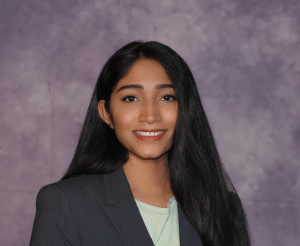
Program: Master of Science in IT & Management
Undergraduate University and Major: University of Texas at Dallas, Information Technology and Systems
Graduating Class: Class of 2021
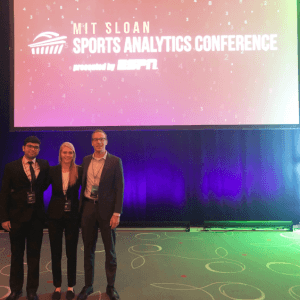 Over the weekend of March 1-3, we attended the MIT Sloan Sports Analytics Conference in Boston, MA. The goal of the conference is to provide a forum to discuss the increasing role of analytics in the sports industry. As MSBA students, it was exciting to have the opportunity to listen to industry professionals speak about how analytics are being applied to various functions of the sports industry.
Over the weekend of March 1-3, we attended the MIT Sloan Sports Analytics Conference in Boston, MA. The goal of the conference is to provide a forum to discuss the increasing role of analytics in the sports industry. As MSBA students, it was exciting to have the opportunity to listen to industry professionals speak about how analytics are being applied to various functions of the sports industry.
The conference itself was a confluence of people from around the world representing many different sports at both the amatuer and professional level. The main reason for attending the conference was to learn about how analytics concepts that we have discussed in the program are being applied to a myriad of different sports in order to create more “beautiful” games, to better understand fan bases, to assist users in the world of sports betting, and to help facilitate decision making for coaches and management alike.
There was knowledge to be gained all around- from the panels, talks, and research paper presentations to casual chats with fellow attendees. We enjoyed meeting many different people involved in the world of sports analytics, from seasoned professionals to current students. By attending the Sloan Conference, we were able to network with various professional sports teams and league offices such as LA FC, FC Barcelona, the Buffalo Bills, and the Golden State Warriors. We even got to catch up with some MSBA alumni, including Drew Lieberman at the Miami Dolphins and Nick Fleder at the Indianapolis Pacers.
When considering what we learned of the sports industry and the exploding use of data and analytics in it, it’s clear that our MSBA curriculum is most certainly preparing us for such an industry and equipping us to adapt to the ever-evolving trends in analytics in general. Topics that arose at the conference include deep learning and neural networks, managing databases, social media analytics and ticket pricing/revenue management. This conference allowed us to see the importance of these analytics concepts as well as get a chance to see some of the practical applications in sports.
Additionally, the MSBA program prides itself on training “quantitatively capable storytellers” and preparing its students to be able to effectively communicate their findings to peers, stakeholders, and clients alike. The panels and presentations we saw all weekend were both inspirational and instructional in showing us how to present data insights to audiences with varying levels of fluency in statistics and machine learning concepts.
A few presentations in particular stood out. The first was “Beautyball: Using Analytics to Build Beautiful Games” by ESPN NBA Analyst (and current UT Professor Kirk Goldsberry). Using the framework of the NBA’s evolving shot distribution – fewer post-ups, more three pointers – Goldsberry asserted that sports leagues need to consider how they want their games to look and then use analytics-based methods to refine their rules to get there. One example would be identifying a reasonable proportion of shot attempts that should be three-pointers. The NBA could then move the three-point line back a distance where the new efficiency of the shot would incentivize teams to attempt them at the desired rate. Goldsberry is known for his beautiful visualizations, and he was a great example of how to effectively present data.
Among the more technical presentations, we were fascinated by “Going Beyond Tracking Data: Using Body-Pose for Next Generation Analytics” presented by Sujoy Ganguly, the head of Data Vision at STATS. Previously, STATS was only able to track player position in x-y coordinates if their SportVU cameras were installed in stadiums. Ganguly demonstrated how they can now use neural networks to analyze television broadcasts of sporting events to track each player’s position and body pose – including the position of their limbs. He even showed the famous footage of Michael Jordan’s game winning shot in the 1998 NBA Finals and overlaid the player positioning tracking data they were able to pull from the footage. This could be a revolutionary advancement, and it was great to see a new application of the neural network image recognition methods that we learned about in Professor Ghosh’s Advanced Predictive Modeling course.
Overall, the conference was a rewarding experience for this trio of MSBA students. It is certainly a must attend for students of future cohorts who have not only a passion for analytics but a love for sports and competition, and want to play their parts in the making of champions.
#TXMS Students attended the RE.WORK Deep Learning Summit – hear from them about the experience and what they’ve gained!
 We had the amazing opportunity to attend the 5th Annual RE.WORK Deep Learning Summit in San Francisco held on 24-25th January this year. The conference had the most captivating sessions lined up by researchers and working professionals from organizations like Facebook, Google Brain, Uber AI Labs, Walmart Labs, GE, Samsung, AIRA working extensively to empower the blind and numerous more. The sessions also included workshops which were really constructive in getting us acquainted with alternative tools we can use for our ML oriented projects. This year conference was also special as in addition to Deep Learning and AI Assistant directed sessions, there were numerous other sessions revolving around Environment & Sustainability, Ethics & Social Responsibility, Futurescaping, Investors & Startups and Technical Labs, Education & AI, Industry Applications; 8 new stages that were never seen before for the Deep Learning Summit. (Pictured: MSBA- Serena Du, Avani Sharma, Apoorva Reddy, Atindra Bandi, Sagar Chadha, Akhilesh Narapareddy)
We had the amazing opportunity to attend the 5th Annual RE.WORK Deep Learning Summit in San Francisco held on 24-25th January this year. The conference had the most captivating sessions lined up by researchers and working professionals from organizations like Facebook, Google Brain, Uber AI Labs, Walmart Labs, GE, Samsung, AIRA working extensively to empower the blind and numerous more. The sessions also included workshops which were really constructive in getting us acquainted with alternative tools we can use for our ML oriented projects. This year conference was also special as in addition to Deep Learning and AI Assistant directed sessions, there were numerous other sessions revolving around Environment & Sustainability, Ethics & Social Responsibility, Futurescaping, Investors & Startups and Technical Labs, Education & AI, Industry Applications; 8 new stages that were never seen before for the Deep Learning Summit. (Pictured: MSBA- Serena Du, Avani Sharma, Apoorva Reddy, Atindra Bandi, Sagar Chadha, Akhilesh Narapareddy)
We collected our passes the night before 24th January in a welcoming event kicking off our networking early. The next day we started off from the Deep Learning stage where Anirudh Koul from Aira introduced the distinguished speakers of the subsequent sessions from divisions like Google Brain, OpenAI amongst many others. The most awaited session was in Anirudh’s words by a “smart fellow, humble fellow”, creator of Generative Adversarial Networks (GANs) and Research Scientist at Google Brain IAN GOODFELLOW. He presented his most recent research in Adversarial Machine Learning.
Ian shared how ‘machine learning algorithms are based on optimization: given a cost function, the algorithm adapts the parameters to reduce the cost. Adversarial machine learning is instead based on game theory: multiple “players” compete to each reduce their own cost, often at the expense of other players’.
He explained how we have come a long way in being able to generate completely new images from GANs. We can convert an image of ‘driving in the daytime’ to ‘driving in the night time’ without any labels or supervision. He also talked about the industrial applications of GANs like creating real world objects for use in dentistry (replica false teeth etc.). The representatives of different organizations like Twitter (Ashish Bansal), Walmart Labs amongst others talked about how AI disruption isn’t something that is concerning, due to the inability of machines to adapt and generalize. There were many other interesting sessions on Day 1 one of them being a session by Yixuan Li from Facebook AI. Their problem statement was understanding the mammoth visual content generated by Facebook users to help in connecting their users with things that matter to them the most. The algorithms they ran were so huge in scale that it took them 22 days with about 356 GPUs to process the entire data. Another interesting workshop we attended was a hands on session on PyTorch using a text classification application by Yannet Interian from University of San Francisco in the Connect stage sessions. The Lunch and coffee sessions were very informational as we got to know more about the experiences of working professional and researchers working in the Deep Learning Field. Other topics that we covered through the sessions were Applying ML & NLP in Google ads (Sugato Bose from Google), On- Device Neural Networks for Natural Language Processing (Zornitsa Kozareva from Google) amongst others.
On Day 2, we started off with a morning session by Anirudh Koul from Aira who hosted the deep learning stage the day before. The session revolved around how AI can empower the blind community, he talked about his motivation for the project coming from his late grandfather. He explained how an AI empowered goggle could help the blind users to understand their surroundings better. The App controlled by a camera (on mobile / goggle) would direct the user by describing the visuals that the algorithms could decipher. This session was a part of the Ethics and Responsibility stage. We also attended panel discussions on the Futurescaping Stage on ‘Human-Centric AI: Interpreting and Adjusting to Human Needs in Human-Machine Collaboration’ with panelists from different spaces like Dimitri Kanevsky (Research Scientist at Google), Vinod B.(Data Scientist at Coursera), Dorsa Sadigh ( Phd student at Stanford University). Another session we attended was “Brand is Beyond Logos – Understanding Visual Brand” by Robinson Piramuthu from e-bay where he explained how logos impacted the sensory perceptions of viewers and how that can be signaled using neural networks. Sessions like predicting the on setting of Alzheimers using neural networks made us aware of the breadth and depth to which we could utilize deep learning in different use cases.
The conference was really fruitful in helping us broaden our thought processes for utilization of deep leaning and ML techniques. We got to interact and network with professionals from the Data Science community who shared their experiences and helped us evolve our purview. We ended the memorable experience of attending the RE.WORK Summit by visiting the iconic Golden Gate Bridge and viewing the mesmerizing Pacific!
The one-year Master of Science in Marketing (MSM) program at the McCombs School of Business at The University of Texas at Austin have been designated as a STEM eligible degree program. The designation indicates the rigorous quantitative nature of the MSM curriculum, and international students graduating from colleges and universities in the United States can prolong their studies in the country an additional 24 months by attending a STEM-certified graduate program.
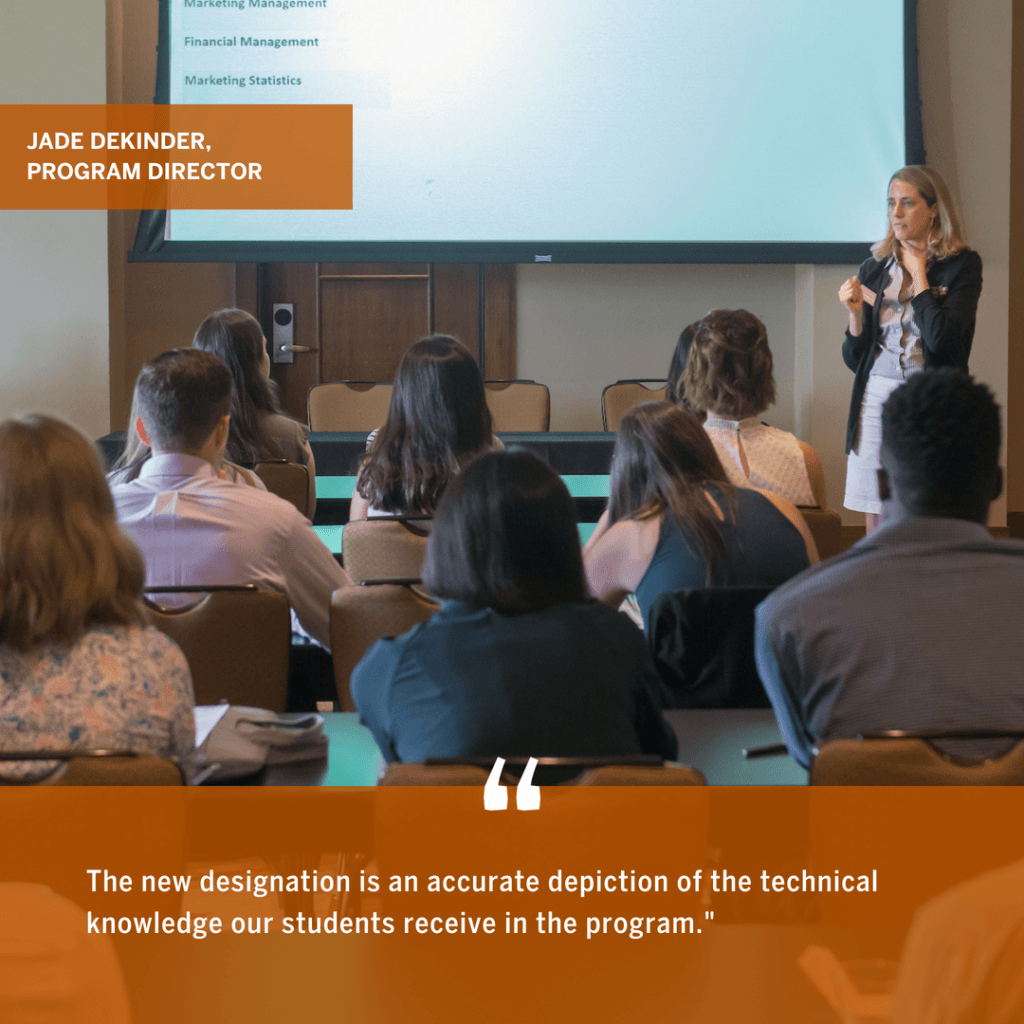 STEM (science, technology, engineering, and mathematics) programs are certified for international students by the Student and Exchange Visitor Program (SEVP).
STEM (science, technology, engineering, and mathematics) programs are certified for international students by the Student and Exchange Visitor Program (SEVP).
Program Director Dr. Jade DeKinder of the MSM said the STEM approval reflects the highly quantitative curriculum of the MSM degree. “The world of marketing has changed so rapidly that successful marketers for the next generation need to have strong quantitative skills – drawing from math, science and statistics. The new designation is an accurate depiction of the technical knowledge our students receive in the program.”
The MS Marketing degree at Texas McCombs is a 10-month graduate business degree open to all undergraduate majors. Students from a variety of work experience levels, from no experience to 5+ years, apply to the program. Cohort sizes are capped at 65 students each to enhance interaction with McCombs world-class faculty, and the curriculum includes a hands-on capstone experience solving business problems for participating companies. The MSM program emphasizes a focus in analytics and data-driven marketing.
The Master of Science in Marketing joins the Master of Science in Business Analytics and Master of Science in IT & Management as STEM-eligible degree offerings.
For more information, contact: Cayce Canipe, McCombs MS Programs Marketing Coordinator, Cayce.canipe@mccombs.utexas.edu, 512-232-7350.
 Program:
Program:Master of Science Bridge Program in Business Analytics
Sam Malcolm
Class of 2019
I grew up outside Philadelphia. After graduating from Penn State I moved to Austin where I’ve lived for the past nine years. Before joining the MSBA program I worked as a video producer creating content for brands like Infiniti, Dell, and Whole Foods. In my free time I love to ride my bike, see movies at the Alamo Drafthouse, and hang with my chihuahua/min-pin pup, Sabine. Also, I’m a die-hard Philadelphia 76ers fan. Let’s talk hoops!
I’m most proud of producing and performing in a weekly show with my improv comedy team. We’ve played to sold out houses every Friday night for the past few years and have multiple B. Iden Payne Award nominations under our belt. I’ve had the opportunity to perform at the Paramount Theatre here in Austin and guest at the Upright Citizens Brigade Theatre in New York City. I get to start my weekends by performing comedy with some of my best friends, and I’m fortunate that people seem to really like what we do.
I loved my undergrad courses on statistics and econometrics. And even though it was never my main professional focus, I realized that my favorite work experiences always involved business strategy and working with data. I wanted to pivot my career to focus on these skills. I knew the MSBA program at McCombs was highly renowned and its coursework was extremely thorough and well-rounded, so it felt like the perfect place for me.
These three weeks have gone by very fast but have also somehow felt like three months. I’m honestly surprised by how much I’ve learned so far. We’ve already completed the first section of our Intro to Predictive Modeling class. In just two weeks we worked our way through an entire textbook and presented group projects where we applied predictive models (most of which we had been exposed to for the first time) to attempt to solve business problems with real world datasets.
I’m most looking forward to getting to know my classmates better. A significant part of the curriculum, including the capstone project in the spring, involves working in teams. Everyone I’ve met in my program so far has been brilliant and kind. I’m excited to learn from and work with each of them.
Texas MS #StudentSpotlight is a recurring feature showcasing the talent, background, and aspirations of the McCombs Master of Science Program students! Learn more about the Texas Master of Science in Business Analytics on our homepage.
Current Texas MS students interested in appearing in our student spotlight should contact their Program Coordinator regarding access to the Student Spotlight Survey.
When evaluating your application, our MS Programs Admissions Committees are looking for a holistic picture of your qualifications for a complete picture of your academic background as well as any internship or work experience you may be bringing to our programs.
When creating your resume, the admissions committee should be able to get a clear picture of what your job duties were – do not assume they will know based on your job title. Take every opportunity on your application to illustrate just WHAT about your job is relevant to your academic goals. Even if your job title sounds impressive, what kind of company you worked for and how extensive your duties were is very relevant. An impressive title with no experience relevant to the program you’re applying to may not go as far.
What you should know about work experience: Years, titles, and accomplishments are not, by themselves deciding factors. To help you provide us with a clear picture, here are our top tips for highlighting the quality and quantity of your work experience on your resume:
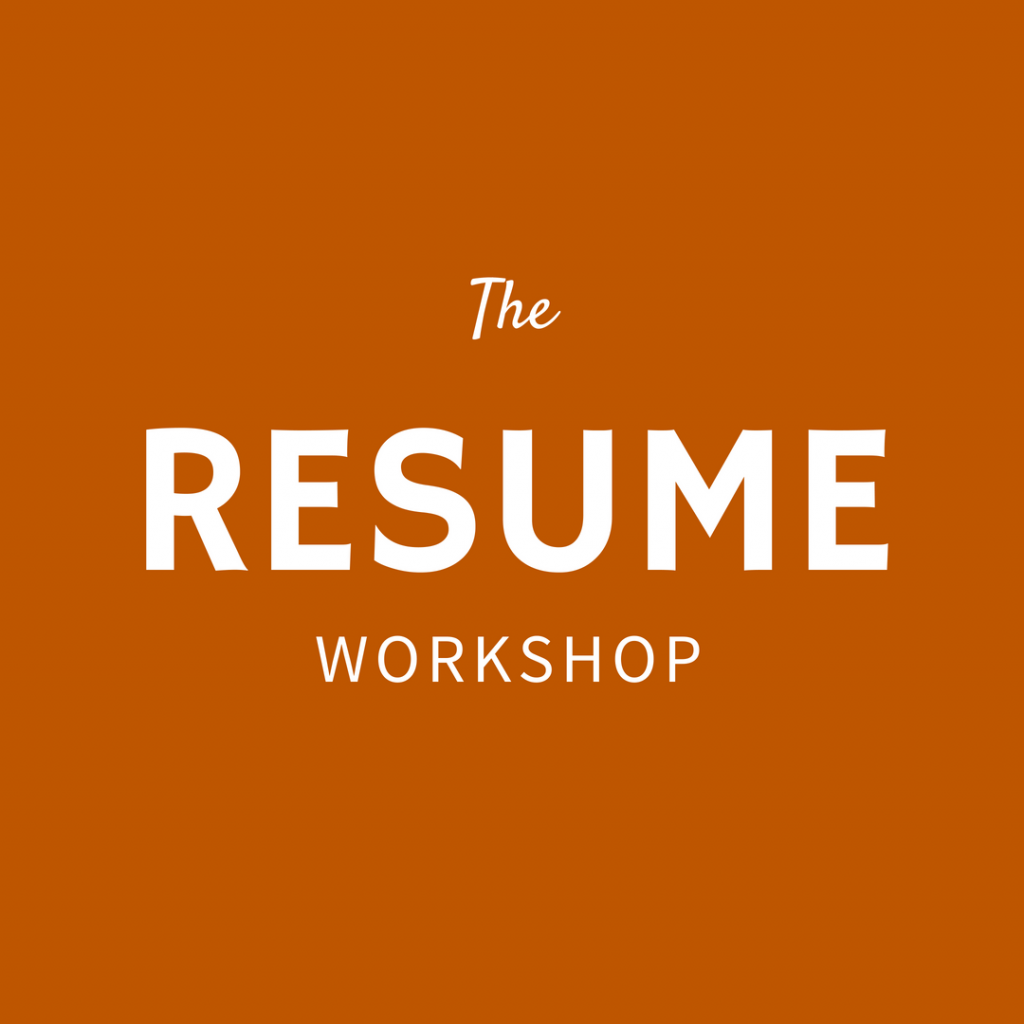
Remember, your resume is important, but it’s only one data point for you as a candidate. Years of work experience give only one sense of you as a candidate, so use your resume to make the quality of those years really stand out!
If you have any questions about applying to the Texas MS Programs, please don’t hesitate to reach out to us: TexasMSPrograms@mccombs.utexas.edu
Each year, the Master of Science in Finance attracts some of the top athletes here at The University of Texas at Austin and beyond. Triathletes, swimmers, baseball stars, football players, and even an Olympic gold medalist, the MS in Finance recognizes that the dedication athletes give to their sports translates directly to the dedication they can give to business. So it comes as no surprise that one of our very own Master of Science in Finance students was awarded a scholarship to recognize his excellence in both academics and athletics.
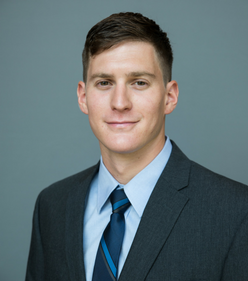 MSF Class of 2019 student Imri Ganiel was one of two recipients of NCAA Postgraduate Scholarships, alongside fellow swimmer Madisyn Cox. The one-time $7,500 scholarships are awarded after each corresponding sport season (fall, winter and spring). The NCAA awards 29 scholarships to men and 29 scholarships to women for each term. It is just the fifth time in UT history that a pair of Longhorns have claimed this honor in the same calendar year and the first since 1988. Ganiel and Cox mark the 27th and 28th athletes at the University of Texas to earn this prestigious scholarship.
MSF Class of 2019 student Imri Ganiel was one of two recipients of NCAA Postgraduate Scholarships, alongside fellow swimmer Madisyn Cox. The one-time $7,500 scholarships are awarded after each corresponding sport season (fall, winter and spring). The NCAA awards 29 scholarships to men and 29 scholarships to women for each term. It is just the fifth time in UT history that a pair of Longhorns have claimed this honor in the same calendar year and the first since 1988. Ganiel and Cox mark the 27th and 28th athletes at the University of Texas to earn this prestigious scholarship.
As a swimmer, Imri began his career at the age of 12, and throughout the years represented Israel as a part of the Junior and Senior national swim teams, ultimately going on to represent Israel at the 30th games held in London. After completing Israel’s mandatory military service, he was recruited to swim for the University of Texas Men’s Swimming and Diving Team. He was a member of three national championship title teams, with four Big XII titles. With an original undergraduate goal of pursuing medicine, Imri realized senior year that his interests were in finance and the economy.
Upon completing his undergraduate degree, Imri wanted to gain a solid foundation in business and finance skills that could open more possibilities for him in the future. “I was looking for a program that would not only teach me a lot, but challenge me. I knew UT has a great business school, which helped make the decision a lot easier.” The fact that the program was completed in 10-months and was open to all undergraduate majors attracted him as well as a Biochemistry undergraduate. “I had no previous background in finance or business; therefore, I was looking for a program that will teach me a lot. I enjoy being a student and, through my experience as a student-athlete, was confident I could handle the academic intensive course load.”
Imri cites training as an athlete as strong preparation for the academic rigor of the program. With 9 water workouts and 5 weight room workouts weekly (a total of around 22 hours!), he entered the program with strong time management and organization skills. “I knew what I had to do every day in order to successfully complete all of my assignments and projects. I would try to do a bit every day rather than trying to cram everything the last night.” Imri also saw the importance of “non-school” days on the weekend, but ultimately, prioritizing his training and academics helped him succeed. “Scheduling my time and working hard all semester long has definitely saved me during midterms/finals time, especially when it came to getting more hours of sleep.”
Now as a MS in Finance student, Imri has excelled in his studies. When dealing with an academically intensive program, Imri believes that his experience as a student-athlete has helped him stay organized and succeed in this program. Currently enrolled in extra courses, Ganiel has maintained a top degree of academic excellence in the program.
The MS Finance program is excited about Imri’s future. “I accepted a position as an analyst with Raymond James’ oil and gas equity research team in Houston and will be starting in mid-June.” Beyond that, he sees many possible paths in finance open to him. We are proud to have him as a Texas MSF future alum and can’t wait to see what the future holds.
The Texas Master of Science Programs would like to extend a warm congratulations to both Imri and Madisyn on their well-deserved scholarships.
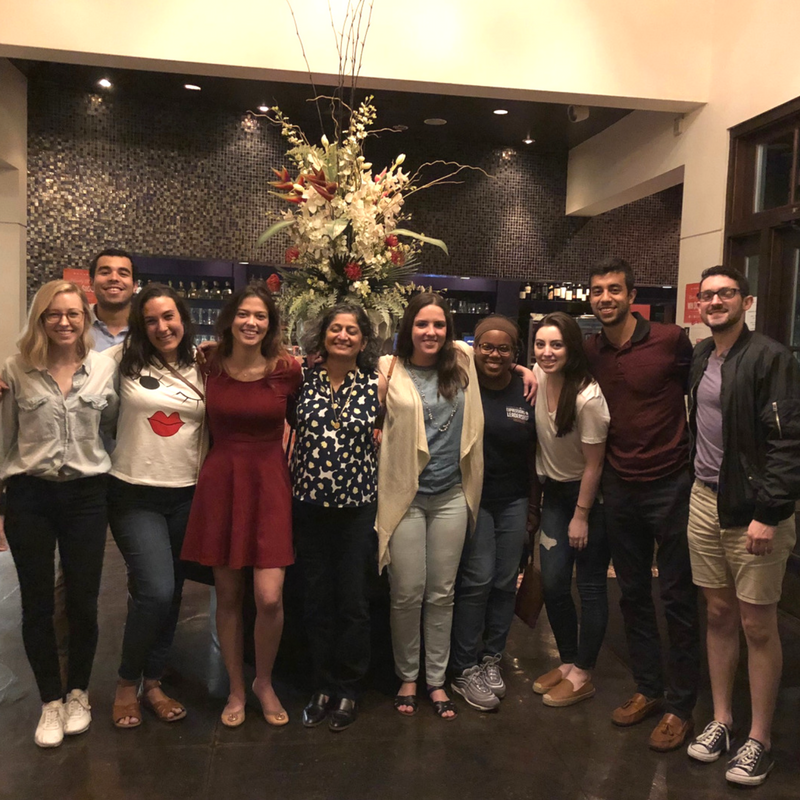 It’s getting to that time of year when our Master of Science students are starting to stress (just a little!). The end is in sight, finals are coming up, capstone projects are coming to a close, and many of them are starting to think about careers that await them. So amidst all this hard work, it’s nice to see our students getting a little break. Dr. Srinivasan of the Master of Science in Marketing Program and her New Venture Marketing students went to dinner as a group as a little reward for all their hard work.
It’s getting to that time of year when our Master of Science students are starting to stress (just a little!). The end is in sight, finals are coming up, capstone projects are coming to a close, and many of them are starting to think about careers that await them. So amidst all this hard work, it’s nice to see our students getting a little break. Dr. Srinivasan of the Master of Science in Marketing Program and her New Venture Marketing students went to dinner as a group as a little reward for all their hard work.
New Venture Marketing is part of the cutting-edge MSM curriculum that combines quantitative analytical skills with the kind of qualitative decision-making marketers in digital age are making. The course asks students to think as a CEO might about marketing strategy from start to finish. Utilizing case studies to examine applied marketing principles, students can learn from real-world outcomes of different types of marketing decisions. Students get to alternate from the viewpoint of entrepreneur and investor to see multiple angles of an entrepreneurial venture.
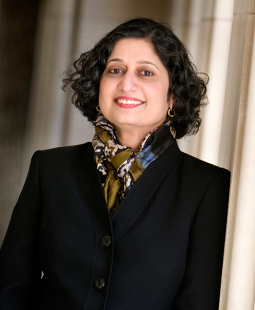
The MS in Marketing curriculum is top-ranked thanks in large part to professors like Dr. Srinivasan. Dr. Srinivasan was recently named Associate Dean for Diversity and Inclusion. In this role, Dr. Srinivasan will lead a committee Texas McCombs faculty and staff to create a practical action plan that will push the school’s ambitious diversity and inclusion goals forward.
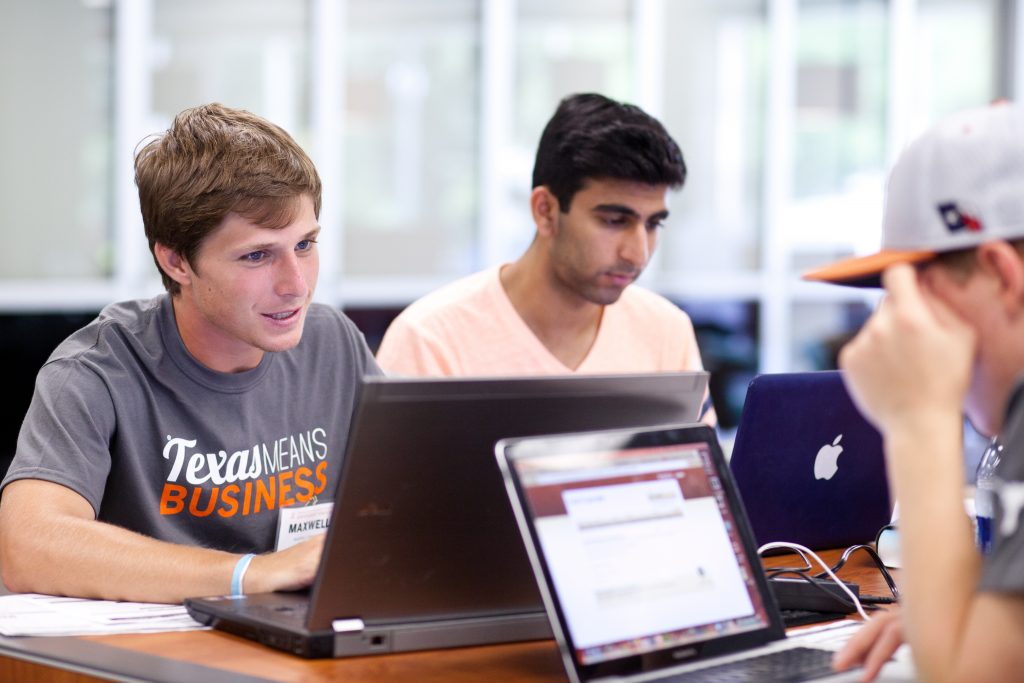 You’ve got all your materials lined up for your chosen Master of Science Program, and you’re staring down the testing requirement. GRE or GMAT? GMAT or GRE?
You’ve got all your materials lined up for your chosen Master of Science Program, and you’re staring down the testing requirement. GRE or GMAT? GMAT or GRE?
Can’t decide? Need some help preparing? Look no further.
Usually the first – or the last – thing our applicants complete for their application is their standardized test. It can be overwhelming. Which test should I take? What if I don’t score high enough? How to I prepare to ensure that I do? Can I retest? All of these questions and more are answered right here!
If you’ve started your application process, you’ll know that the Master of Science Programs accepts either the GRE or GMAT (we accept both the in-person and at home versions of both exams). One of the many questions our admissions team is asked is, “Which test do you prefer?” Either one! Our committee generally does not have a preference. However, once you’ve submitted one test score, if you need to retest, check with your specific program regarding your retest. Some admissions committees will be open to you swapping tests while others may ask you to take the same test again.
There are some pros and cons to each test, so use these tips to help decide which test might be right for you.
Choosing a Test
The GMAT is looked at by most large consulting and investment banking companies because they use your score as a baseline qualifier for the recruiting process. If consulting or investment banking are in your sights, this means that the GMAT is the best choice because you could take it once and use your score for both your MS application as well as your career recruitment profile.
The GMAT is simply more common among business school students, so recruiters will have more experiences assessing skills of applicants based on the GRE. However, if you’re in a field like our MS Marketing degree, which typically does not operate through recruiting, you may be better suited to the GRE.
Most graduate business programs only started accepting the GRE as an alternative to the GMAT within the last decade. Alumni and hiring companies are simply more familiar with the GMAT and its score scale. However, as it currently stands, the MS degrees here at UT see about half and half scores submitted each year, and our students have an excellent post-graduation career placement rate. So while the GMAT is still the prevalent exam within most business schools, our students are seeing success no matter which test they choose to take.
 Whether you’re taking the GRE or GMAT, we strongly encourage that you dedicate some time to studying for and preparing yourself for the test. Most students are spending anywhere from 50 to 200 hours preparing for standardized tests. There is no minimum score for any of our MS degree programs, but they are a strong factor in the admissions committee consideration of your application. Keep in mind that since we are quantitatively-based Master of Science degrees, our admissions committee is especially taking into consideration your quantitative test scores. Don’t ignore the qualitative side, though! As business degrees, we’re interested in candidates who have great communication skills as well as an ability to handle data and numbers.
Whether you’re taking the GRE or GMAT, we strongly encourage that you dedicate some time to studying for and preparing yourself for the test. Most students are spending anywhere from 50 to 200 hours preparing for standardized tests. There is no minimum score for any of our MS degree programs, but they are a strong factor in the admissions committee consideration of your application. Keep in mind that since we are quantitatively-based Master of Science degrees, our admissions committee is especially taking into consideration your quantitative test scores. Don’t ignore the qualitative side, though! As business degrees, we’re interested in candidates who have great communication skills as well as an ability to handle data and numbers.
Sometimes it’s the little things. Bear in mind that the GRE is about 3 hours long and the GMAT is about 3 and a half hours – so you need to be mentally ready! Don’t cram the night before, get a good night’s sleep, and eat beforehand. No one wants to go into a test on an empty stomach!
For the GMAT, look no further than MBA.com. No longer a website for just MBA applicants, our MS applicants can utilize these resources to help them get ready for the GMAT. This page will help you understand how to spend your time studying, how to manage test anxiety, and there’s even a quiz to come up with your own customized study plan! You’ll also want to take some practice exams. GMAT offers a number of official practice exams – you’ll need to download the free test prep software to access their two free practice tests. These two are almost identical to what you’ll see on test day, so it’s important to take it seriously and note where you’re having issues.
As you go through the practice tests, it’s as important to understand what the test is asking you to do as it is to understand portions you are struggling with. Consider keeping an error log to identify not only what section you struggle at but also if there’s a time pattern (did you miss most of your questions around the two hour mark? This can help you mentally prepare to give yourself a boost around that time in the real test!).
 Consider starting at ETS’ own free resources. They provide some great options to review Quantitative Reasoning, Verbal Reasoning, and the Analytical Writing portions of the test. There are also options to take sample tests via POWERPREP online. It will not only get you ready for the format of the actual test (navigating between questions, types of questions, etc. ); it will also give you a good gauge of what materials you need to brush up on more.
Consider starting at ETS’ own free resources. They provide some great options to review Quantitative Reasoning, Verbal Reasoning, and the Analytical Writing portions of the test. There are also options to take sample tests via POWERPREP online. It will not only get you ready for the format of the actual test (navigating between questions, types of questions, etc. ); it will also give you a good gauge of what materials you need to brush up on more.
Feel like you may need a little more preparation? Here are some recommended practice tests and resources you can get new or used to help you get ready.
If you take your test and feel like you could score higher or you’ve submitted your application and the admissions committee has asked for a new score, try not to stress over your retest. Check out this blog regarding preparing the retest – you’ll see the FIRST piece of advice is to lower your anxiety. There’s also some great advice on accessing more practice tests and checking which resources you used to prepare the first time. Identify new resources, identify points of struggle, and work on improving those rather than doing another holistic study review. The upside to a retest is that you should be at least somewhat familiar with what’s coming, which is a significant portion of the battle when it comes to test-taking.
We hope our GRE/GMAT Testing blog was helpful! If you have additional questions regarding submitting your test scores to the MS in Business Analytics, Finance, IT & Management, or Marketing programs, utilize our websites to reach out to our admissions team to get your questions answered. We look forward to your application to join #TXMS!